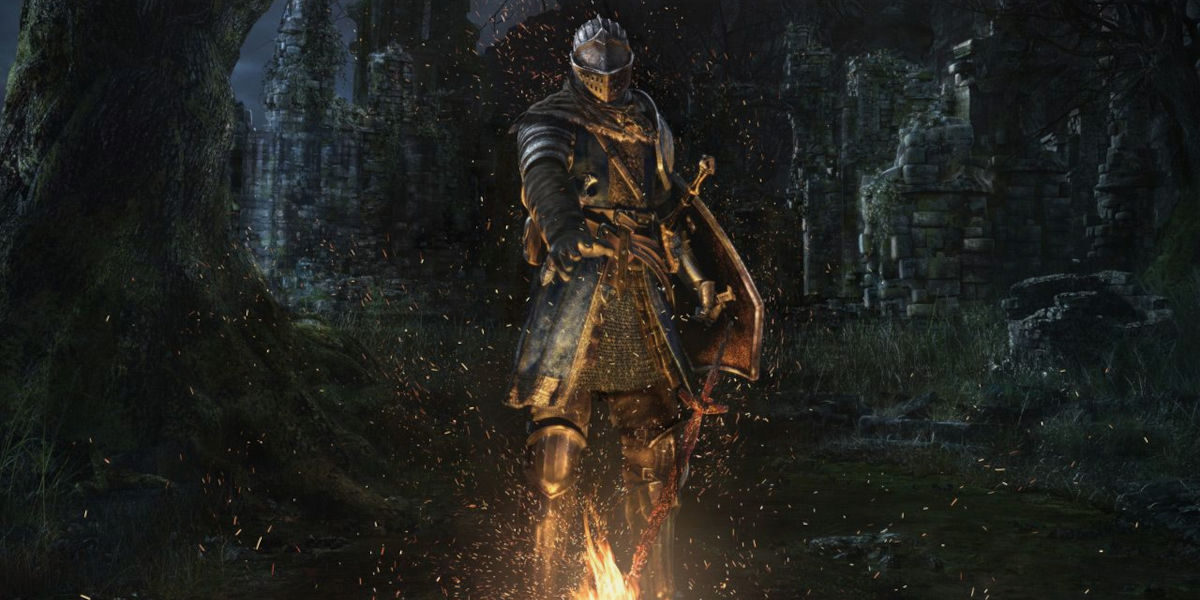If you're a gaming enthusiast, you've likely encountered or at least heard of the hair-pulling frustration that comes with playing Dark Souls, renowned for its merciless intensity. This revered video game allies no mercy in vanquishing unprepared warriors who dare to tread its darkened paths. In this extensive analysis, we will probe into Dark Souls' infamous difficulty, striving to make sense of it, and most importantly, understand why, oh why, is Dark Souls so hard?
Dark Souls' Infamous Difficulty: Not for the Faint-Hearted
The intricacy of Dark Souls begins with its intensely demanding nature. It has been merciless in doling out defeat, raising one vital question: Why is Dark Souls so hard? The answer lies in the core structure of the game. You will encounter formidable monsters, complex labyrinth-like locations, and nearly impossible quests that border on masochistic at times. This difficulty is not artificially engineered, but a consequence of the game's competent design. Its backstory and narrative are as mystifying and intricate as its challenges.
Understanding Dark Souls Difficulty: A Persistent Test of Skill and Patience
Dark Souls' complexity isn’t just a matter of being brutally hard—it’s psychological warfare. Unlike other video games that hold their player’s hands with extensive tutorials and frequent checkpoints, Dark Souls other end of the spectrum. The enemies you face are as relentless as they are terrifying, and the game is notorious for having sparse checkpoints. Every forward step in the game is a result of your learned skills and sheer determination.
The punishment for death in Dark Souls is brutal as well. Upon dying, players respawn at their last visited bonfire (checkpoints in the game), losing all their acquired Souls (the game’s currency). To make matters grimmer, dying again before reclaiming your lost Souls results in their permanent loss. This harsh consequence not only adds to the level of difficulty but also raises the stakes, making every move matter.
Even the most experienced players are sure to find that Dark Souls continues to pose a formidable challenge, as each new path discovered presents its own unique trials and tribulations. But why is this? Simply put, Dark Souls is designed in such a way that it is always a few steps ahead of the player, obliging them to think critically, act quickly, and above all else, learn from their mistakes.
Daring the Dark
One cannot simply dip toes into the enigmatic ocean of Dark Souls. It's an all-or-nothing odyssey that plunges players into an eerie, decrepit world engulfed in darkness and teeming with the most grotesque conceptions of evil. The game's notorious difficulty level doesn't lie in its mere monster-ridden mazes or formidable bosses. The mystique instead roots in its cryptic storytelling, coupled with demanding combat mechanics that necessitates perfection on the player's part.
Dark Souls doesn’t rely on bland checkpoints or life-cushions for players. Every choice comes with significant consequences, crafting individualized narratives and experiences. Therefore, expertise in Dark Souls isn't boasted through mere victory but endured by overcoming the crushing sense of defeat, uninterrupted persistence, and a deep understanding of the game’s world and its rules.
Unlocking the Secrets
Unlocking the secrets hidden within this dark and hard kingdom requires a keen eye and even keener instincts. In this world, even a small error in judgement can lead to a brutal, agonizing death. Exploring every nook and cranny and questioning every item's motive is critical to surviving in this harsh reality. The lore and world-building are silently weaved into everything - the architecture, item descriptions, enemy placements, everything narrates a piece of the cryptic tale. Understand these, and you start to chip away at the veneer of vagueness dressing the game.
The Art of Combat
Dark Souls does not hand-hold its players. And that ethos is mirrored in its complex yet rewarding combat system. Players need to learn how to judge their foes correctly, understand the flow of combat, and utilize their stamina strategically. Button mashing or carefree striking will mostly lead to swift demise. The key is timing and precision - the art of striking when the moment is absolutely right and blocking when that brief instant of vulnerability appears.
Difficulty: A Tool, Not a Barrier
While many perceive the difficulty in Dark Souls as a frustrating barrier, it is, in essence, a tool of immersion. It creates an in-game world that is as unforgiving as it is fascinating. It forces players to fully embody their characters, think their decisions through, and live with the consequences. The challenge posed is not for the purpose of creating an 'elitist' player community but to compel players to engross in the gothic atmosphere the game developers have so carefully crafted.
In conclusion, the difficulty level of Dark Souls, the enigmatic storytelling, the depth of its combat and world-building mechanics, all merge to create a unique, immersive experience difficult to find in other games.




